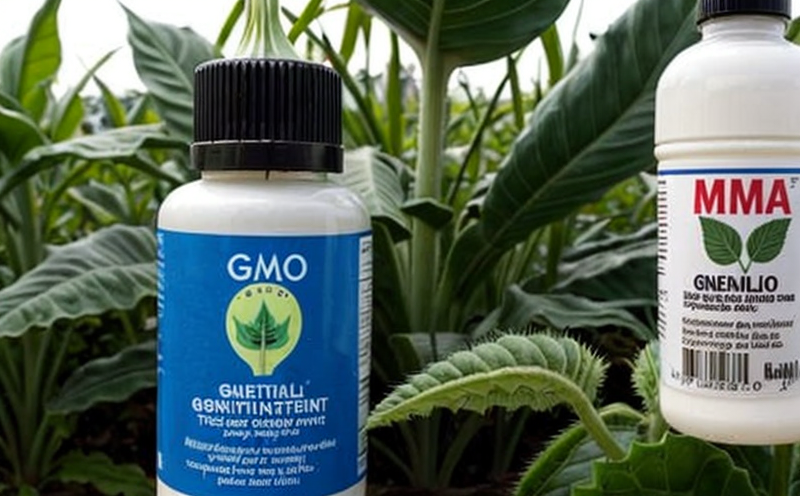ISO 27566 GMO Quantification in Processed Foods
The quantification of genetically modified organisms (GMOs) in processed foods is a critical process for ensuring compliance with international regulations and consumer expectations. ISO 27566 provides the standard methodology for detecting and quantifying specific GMOs in complex food matrices, which includes various stages from raw materials to final products.
The process begins with sample collection, where the focus is on selecting representative samples that reflect the entire batch or production run. Sample preparation then involves extraction methods tailored to ensure that all target DNA sequences are captured and prepared for analysis. This step often requires extensive knowledge of food processing techniques and matrix effects.
Once prepared, the sample is subjected to PCR-based detection technologies such as real-time quantitative PCR (qPCR). qPCR allows for precise quantification by amplifying specific regions of the target GMO DNA sequences while minimizing cross-contamination risks. The choice of primers and probes in this process directly impacts accuracy and reliability.
After amplification, the resulting products are analyzed using sophisticated instruments like fluorimeters or mass spectrometers to quantify the presence and concentration levels of specific GMOs. This step requires meticulous calibration and standardization to ensure consistent results across different batches and laboratories.
The final report generated from this process provides detailed information on the detected GMO species, their concentrations, and any potential contamination risks. These reports are essential for regulatory compliance, consumer safety assurance, and continuous improvement of food production processes.
ISO 27566 ensures that these tests are conducted in a standardized manner across different laboratories worldwide, promoting consistency and comparability of results. This standardization is crucial given the global nature of food supply chains and increasing public scrutiny over genetically modified content in foods.
In conclusion, implementing ISO 27566 for GMO quantification ensures robust quality control measures that protect both producers and consumers. By adhering to this international standard, laboratories can maintain high standards of accuracy, reliability, and traceability throughout the food production process.
Industry Applications
| Application Area | Description | Benefits |
|---|---|---|
| Agricultural Biotechnology Companies | Ensure compliance with GM content regulations. | Compliance, reputation management. |
| Food Manufacturers | Verify the authenticity and purity of ingredients. | Quality assurance, consumer trust. |
| Distribution Channels | Monitor for unintended GM material in supply chain. | Risk management, regulatory compliance. |
| Regulatory Authorities | Enforce GM content labeling requirements. | Public health protection, policy enforcement. |
| Consumer Brands | Develop transparent product labels. | Enhanced brand reputation, consumer confidence. |
Eurolab Advantages
At Eurolab, we pride ourselves on offering comprehensive GMO quantification services that meet the highest standards set by ISO 27566. Our team of experts is well-versed in the complexities of food processing and matrix effects, ensuring accurate and reliable results.
We utilize state-of-the-art laboratories equipped with advanced instrumentation to perform qPCR analyses. This ensures that our clients receive reports that are not only compliant but also highly precise. Our commitment to quality extends beyond just technology; we ensure strict adherence to ISO 27566 guidelines throughout every stage of the process.
Additionally, Eurolab’s extensive experience in this field allows us to provide valuable insights and recommendations based on our findings. Whether it's optimizing production processes or ensuring compliance with changing regulations, our team is here to support your needs.
Environmental and Sustainability Contributions
GMO quantification plays a vital role in promoting environmental sustainability by helping companies make informed decisions about their supply chains. By identifying potential sources of contamination, these tests enable businesses to implement corrective actions that reduce environmental impact.
Moreover, understanding the presence and concentration levels of specific GMOs allows for better resource management practices within agricultural biotechnology companies. This knowledge can lead to more efficient use of resources such as water and land, contributing positively towards sustainable development goals.
The transparency provided by accurate GMO quantification also fosters trust between producers, distributors, and consumers, encouraging responsible consumption patterns that benefit both the economy and ecology.





